David Simon knows you loved . He also knows you probably didn't watch when it was actually on TV, i.e., when your patronage and fandom would have actually helped him. Instead, chances are you're among the majority who came to The Wire through DVD and streaming post-fact (or you're just pretending to have watched the show so your friends will stop badgering you about it). Now that Simon has a new HBO show, The Deuce, he'd really prefer it if you didn't wait several years to finally get around to watching it.
But is The Deuce worth your time? It's a show about the pimps, mobsters, crooked politicians, hookers and aspiring filmmakers who contributed to the rise and eventual legalization of the porn industry in 1970s New York, specifically the pre- Deep Throat period of '71 and '72. However, we've heard this story before. Rather recently, in fact. The Get Down was about the birth of hip-hop in 70s New York. Nobody watched. Netflix canceled it. Vinyl was about the rise of rock n' roll culture in 70s New York. Nobody watched. HBO canceled it.
Huh. Maybe Hollywood is just more nostalgic for 70s New York than the rest of us. What makes The Deuce so special then?
Oh, nothing. Just the fact that it's really, really good, as in 96%-on-RottenTomatoes good. Plus, as Matt Zoller Steitz pointed out, it's a show which is entirely free of any nostalgia for the era its dramatizing, which frees it up to be brutally honest and ultimately more rewarding. The movie-length pilot has been available on HBO Now for weeks now, but it officially premieres on HBO tonight with 7 more episodes set to unfurl over the next two months (and a second season already planned should HBO opt for renewal). Here's everything you need to know:
The Title Refers to a Famous Street Nickname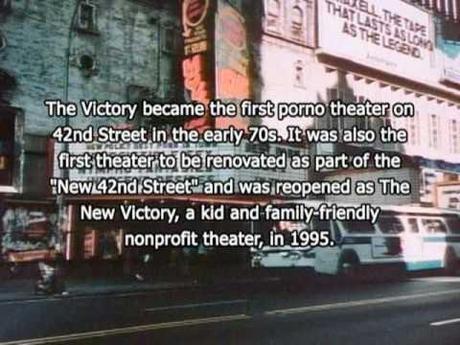
"The Deuce" is what people used to call 42nd Street in Manhattan, which was the epicenter for grindhouse theaters and peep shows in New York for thirty years beginning in the 50s and ending in the late 80s.
James Franco Plays Twins, Not Because It's Him Being Quirky As Per Usual But Because Those Twins Actually Existed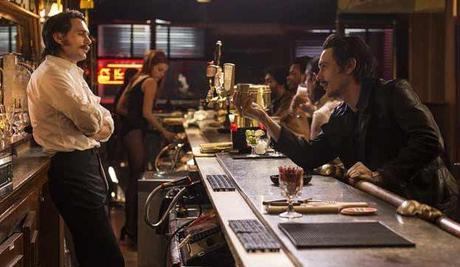
Franco plays Frankie and Vincent Martino, one a degenerate gambler and the other an ambitious barman with kids and a feckless wife played by Zoe Kazan. Beyond the obvious differences in their personalities, you can tell them apart via the small scar Vincent has on his head (thanks to a street fight in the opening scene of the pilot) that his brother doesn't. It might seem like yet another case of Franco being Franco, i.e., quirk for quirk's sake, but in reality if not for those twins The Deuce wouldn't exist.
Vincent and Frankie Martino are really just made up names for real life twins Steve and Johnny d'Agrosa, who operated mob front businesses on 42nd Street for nearly two decades. Five years ago, Johnny's daughter contacted Marc Henry Johnson, a former assistant location manager with David Simon on Treme, and pitched the idea of doing a TV show about her father and uncle. Better yet, her uncle, Steve, had recorded 90 hours worth of audio tapes describing his life story with a heavy emphasis on his time around 42nd Street and Times Square.
Johnson took this to Simon and Simon's frequent partner George Pelecanos, who were initially very reluctant but ultimately enticed by the intersection of sex, politics and money. They ordered Johnson to conduct even more interviews with anyone and everyone he could find who was still alive from that era, and also told him to conduct follow-up video interviews with Steve, with the videos later used to give Franco something to model his performance off of. Sadly, though, Johnny had died some years earlier, and while Steven survived long enough to offer notes on The Deuce's first 3 scripts he eventually lost a battle with cancer before the start of production on the pilot. Either way, The Deuce is now considered to be such a thoroughly researched show that while not everything on it actually happened almost everything on it could have happened.
It's "About" Porn the Same Way The Wire is "About" Drugs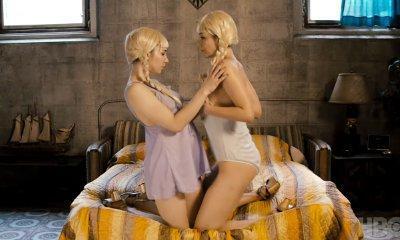
Simon and Pelecanos really didn't want to make this show. They both felt too old and settled in their respective suburban lives to voluntarily become the guys making a show about porn. However, when they met with Steve d'Agrosa 5 years ago and heard his first-hand account of having a front row seat to the explosion of secretly mob-controlled porn, politicians and real estate they started hearing a lot of the same things that initially got them into The Wire.
As Simon told KCRW's Kim Masters, "I started seeing the economic construct of a company town, of a rigged system, of the people who have agency, of the people who don't have agency, the people who are used, the people who are betrayed, the people who profit, where the money goes. Just like The Wire. I was never particularly interested in making a moral case against drug use or against illegal drugs or a moral case for drug prohibition. What I was interested in where does the money go and how does power and profit array itself. To me, that was The Wire. It was an argument about market capitalism. Absent any other social framework to create a just dynamic and just society, what happens?"
Porn's Not Even Mentioned in the Pilot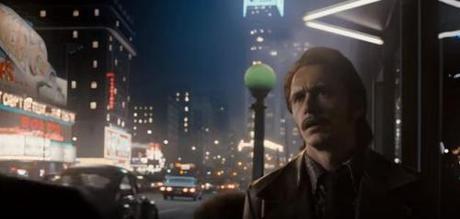
And when he asked that last question to Steve about all the other people who were in the New York porn and mob scene of the 70s the answer he kept getting back is that few survived and hardly anyone thrived since a system built on exploitation not so surprisingly favored the people with the money and chewed up those without.
The Sex On Display Is Neither Titillating Nor Exploitative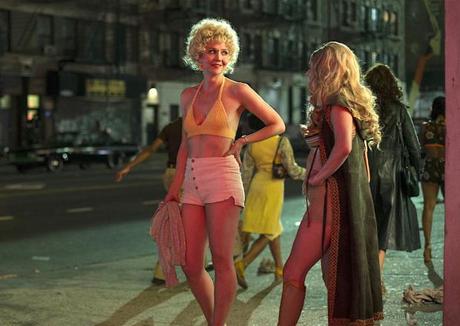
The pilot is more about introducing us to the sprawling ensemble, which in addition to Franco's twins also includes Maggie Gyllenhaal's "Candy" (a pimp-less prostitute with a kid she's not allowed to see) and several Wire alums as various pimps, prostitutes, college students and mobsters. The notion of any of these people having anything to do with the porn industry is not broached until the second episode, and even then as per Simon's above quote porn is but an excuse for the show to make a historical observation about the effects of market capitalism, about who truly exploits whom in the context of porn with a larger eye on tracking down where exactly the money goes.
Instead, it's honest (and depressing) about the transactional nature of sex work, and presents naked bits of flesh, both male (yes, there is the occasional shot of a penis) and female, in the most matter-a-fact way possible.
This Isn't Boogie Nights: New York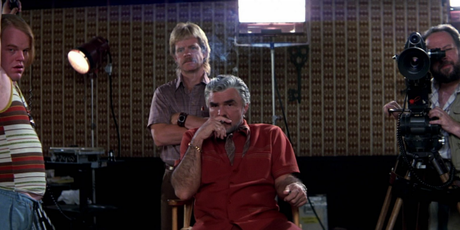
This is the end result of a concerted effort on Simon and Pelecanos' part to not simply tell the story from a male point of view. They staffed up with as many female voices behind the scenes as possible (e.g., Michelle MacLaren directed the pilot and season finale), and welcomed Gyllenhaal's demand that she be made an executive producer and thus allowed to contribute story ideas (which is possibly why "Candy" has the season's most fascinating arc as she not only crosses over into porn but aspires to be a porn director and gains a conflicted sense of empowerment). Furthermore, the writer's room consisted of Simon, Pelecanos, several women, a black person, a gay man, a Transgender individual and a longtime TV veteran who actually lived in New York in the 70s and 80s.
To this point, Paul Thomas Anderson's Boogie Nights has been considered the definitive cinematic work on porn, and it absolutely is if you're just talking about the San Fernando Valley days of the late 70s into the 80s. The variables that were in play there, however, are very different than the ones which informed the formation of the porn industry in New York a half decade earlier. Moreover, Anderson's inspiration for Boogie Nights was a John Holmes documentary which amused him as a teenager, and a poor experience with the producers on his first film, Hard Eight, which emboldened him to throw every filmmaking trick he could think of at Boogie Nights as a means of proving his worth and announcing himself to the rest of the industry. Thus, the film is littered with ingenious steadicam sequences, Scorsese-esque depictions of drug abuse and deals gone wrong and a killer soundtrack of period-specific pop songs. It is a cinematic tour de force about the perversion of the American dream and the long-term cost of the hedonistic 70s.
It Was Almost Squeezed Out By Vinyl and The Get Down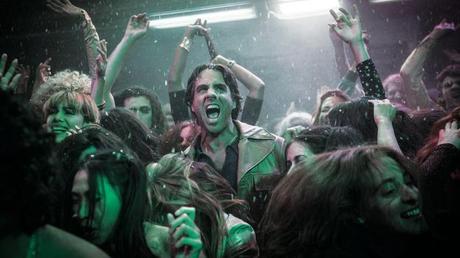
That's not what The Deuce is about. David Simon and crew are clearly more interested in telling a macroeconomics story on a micro level, using select characters to examine the role of money and corruption in our sexual politics. There are scenes with impossibly amateurish directors who have dreams of grandeur ala Burt Reynolds in Boogie Nights, but they're stuck in-between backroom dealings and blood-soaked handshake deals. That's because The Deuce is set in a grittier and grimier world than Boogie Nights, as befits the difference between 42nd Street New York and San Fernando Valley, California. It's neither better nor worse than Boogie Nights; it's just different, even if the longer term arc of success and freedom leading to excess and crushing failure is the same.
If it seems a bit odd to have so many high-profile shows about 70s New York overlapping that's because it is, to the point that HBO initially passed on The Deuce because it already had Vinyl in production and Netflix passed because it already had The Get Down. It was only after David Simon returned to HBO and dropped his demand for a full season order and agreed to simply make a pilot and hope for the best that the show truly got off the ground. HBO ultimately gave him the full season after seeing the pilot, and for a hot minute there the cable giant was going to stick with Vinyl while also supporting The Deuce. Then Vinyl's second season was preemptively canceled, and many of its period-specific outfits and props were gifted to The Deuce.
Will you be making time for The Deuce? Or does it sound less fun and too much like homework? Or is the subject matter and setting simply of no interest to you? Let me know in the comments.

